Information/Write-up
In 1956, the Canadian Broadcasting Corporation inaugurated the Concours de la chanson canadienne, a national contest designed to encourage original songwriting in both English and French Canada. It was an ambitious cultural experiment—one that sought to uncover and celebrate the emerging voices of a postwar generation ready to define Canadian identity in song.
The response was remarkable: nearly 1,200 entries arrived from across the country. A jury of five prominent musicians and broadcasters reviewed every submission, ultimately selecting 120 songs for broadcast. From those, thirty-one advanced to the semifinals, culminating in a nationally televised gala on February 22, 1957, where twelve works were chosen as prize winners.
These twelve songs were subsequently compiled by Pathé as 12 Chansons Canadiennes – Festival Radio-Canada, 1957. The resulting album stands as a time capsule of creative optimism and musical craftsmanship, documenting a pivotal era in which Canada—particularly Quebec—was beginning to hear itself with new confidence.
Prime Minister Louis St. Laurent, in a message reproduced in the album’s liner notes, congratulated the CBC and l’Amicale de la Chanson for their “valuable contribution to Canada’s artistic and musical life,” calling the event “an exceptional opportunity for the launch of new Canadian songs which will enrich our national repertoire.” His words captured the spirit of renewal that surrounded the project—a moment when government, broadcasters, and artists aligned behind a shared belief in cultural nation-building through music.
Among the winning performances were Lucille Dumont’s majestic Le Ciel Se Marie Avec La Mer (Grand Prix de la Chanson Canadienne) and her nostalgic Parc Lafontaine (Prix Amicale de la Chanson*), Dominique Michel’s lively Sur l’Perron (2ᵉ Prix), and Rollande Des Ormeaux’s luminous Gaieté Printanière (3ᵉ Prix). Other contributors—Colette Bonheur, Michel Noël, Robert Hétu, and several others—helped round out a portrait of the chanson as both deeply personal and unmistakably national.
The record also features compositions by a remarkable cross-section of Quebec’s emerging creative class: Lionel Daunais, Gilles Vigneault, Claude Léveillée, Pierre Brabant, Jacques Blanchet, and Raymond Berthiaume, many of whom would go on to shape the province’s modern musical identity in the decades that followed.
The album’s closing essay, Une Renaissance by Éloi de Grandmont, framed this outpouring of talent as a rebirth—the moment when French-Canadian song, long sustained by oral tradition and community, re-entered the modern world with renewed vitality. His words resonate today as both manifesto and prophecy: “Had we not had our songs, life in this country would never have been the same. Nor would the people have been the same.”
12 Chansons Canadiennes thus marks the beginning of an organized effort to document, publish, and celebrate the art of Canadian songwriting. It captures not only the voices of its performers but the cultural awakening of a nation discovering its own melody.
This newly digitized and restored edition was prepared in collaboration with Vanessa Blais-Tremblay of the Département de musique at the Université du Québec à Montréal. It is offered as part of the Museum of Canadian Music’s continuing effort to preserve and share our musical heritage. With deep respect for the artists, organizers, and institutions who made the original 1957 project possible, this archival reissue stands as both a historical document and a celebration of Canada’s enduring creative spirit.
-Robert Williston
Founder & Curator, The Museum of Canadian Music (CitizenFreak.com)
Produced by Les Industries Musicales et Électriques (Canada) Ltée
Recorded by Electric & Musical Industries (Canada) Limited
Cover photo courtesy of Canadian National Railway
La Société Radio-Canada
et l’Amicale de la Chanson, qui organisent cette année le Gala de la Chanson Canadienne, apportent une contribution appréciable à la vie artistique et musicale du Canada.
Une telle manifestation constitue, sans doute, une occasion sans pareille dans le lancement de nouvelles chansons canadiennes qui viennent enrichir notre répertoire.
Il me fait plaisir d’adresser mes félicitations et mes meilleurs vœux aux organisateurs de cette soirée ainsi qu’à tous ceux qui y prennent part.
[Signature manuscrite]
Louis St. Laurent
Premier ministre
En avril 1956, la Société Radio-Canada lançait un Concours de Chansons canadiennes. Tout compositeur du Canada pouvait y participer en soumettant une ou des chansons inédites sous un pseudonyme. Environ douze cents chansons ont été reçues.
Un comité de cinq membres a fait un premier choix. Cent vingt chansons ont été entendues au cours de la série de musique de trente-et-une furent retenues pour les éliminatoires en vue de la demi-finale.
Le 22 février 1957, les lauréats étaient proclamés au cours d’une émission de gala que transmettent les réseaux français de radio et de télévision de Radio-Canada.
Ces douze chansons, les voici réunies dans cet album.
OFFICE OF THE PRIME MINISTER
CABINET DU PREMIER MINISTRE
The Canadian Broadcasting Corporation and the Amicale de la Chanson, which this year are organizing the Gala of Canadian Song, are making a valuable contribution to Canada’s artistic and musical life.
Such an event undoubtedly provides an exceptional opportunity for the launch of new Canadian songs which will enrich our national repertoire.
It gives me great pleasure to extend my congratulations and best wishes to the organizers of this event, as well as to all those taking part in it.
[Signed]
Louis St. Laurent
Prime Minister
Ottawa,
February 1957
Canadian Song Contest
In April 1956, the Canadian Broadcasting Corporation inaugurated a Canadian Song Contest. Any composer in Canada could participate by submitting one or more original songs under a pseudonym. Approximately twelve hundred songs were received.
A preliminary jury of five members made a preliminary selection. One hundred and twenty songs were then heard during the course of the series and from these, thirty-one were nominated for the eliminations. Finally, a number of jurors judged and named the prize winners and those worthy of honourable mention.
On February 22nd, 1957, the awards were announced during a gala broadcast which was presented over the French radio and television networks of the CBC.
The twelve award-winning songs are here compiled in this album.
FACE 1
MON SAINT-LAURENT, SI GRAND, SI GRAND (My St. Lawrence, So Large, So Large)
Chanté par Lucille Dumont — MENTION
"Mon St-Laurent, si Grand, si Grand comme nos espoirs" is the very first line of the song and the leitmotiv of the refrain. As the St. Lawrence River comes to life again in the Spring, so does the heart of the singer who is saddened by the passing of Winter. A song full of poetic images which expresses the love of the St. Lawrence and of the region it crosses. — Words and music by Lionel Daunais.
LES PERCEURS DE COFFRES-FORTS (The Safe-Crackers)
Chanté par Michel Noël — MENTION
A humorous song which tells the story of a safe-cracker who falls in love with a police officer’s daughter. The romance ends up in a "chaste" marriage. This is an amusing and clever song about petty safe-crackers. One would smile at this new kind of outlaws who go to jail singing about society and their desire to go straight. — Words and music by Gilles Vigneault.
SI TU VOULAIS (If Thou Wishest)
Chanté par Rollande Des Ormeaux — MENTION
"If thou wishest to drink of those kisses…" If the girl to whom this song is addressed would only say "yes" to the plea of the singer, he would go to the ends of the earth with her. He’d sell his house and home to follow her and live only for her. — Words and music by Claude Champagne.
PRIX "AMICALE DE LA CHANSON"
PARC LAFONTAINE (Lafontaine Park)
Chanté par Lucille Dumont
A song full of nostalgia and of Spring and Summer. With the coming of Spring, we think of old loves, of past happiness. We remember the walks taken hand-in-hand on the paths of Lafontaine Park. We hear again the happy laughter and love words and we dream once more of the beloved. — Words and music by Lionel Daunais.
LES ÉTOILES (The Stars)
Chanté par Robert Hetu — MENTION
The singer tells the story of his unhappy love and asks the stars to tell his beloved that he still loves her and that his heart is broken. — Words and music by Georges Aubin.
PRIX "RADIO":
VIOLETTES DES CHAMPS (Field Violets)
Chanté par Colette Bonheur
"The little field violets, our loves have picked them to make a bouquet of tenderness…" A very sweet and poetic song, expressing the deep feelings of the composer. A song full of love, pure love, of those tender moments which go with courtship. — Words and music by Yves Beauparlant.
FACE 2
3e PRIX DE LA CHANSON CANADIENNE
GAIETÉ PRINTANIÈRE (Spring Gaiety)
Chanté par Rollande Des Ormeaux
A poetic evocation of the joy and rebirth which come with Spring. Everything comes to life again, and hearts overflow with joy. The brook laughs again and the little birds sing once more. The loved one is coming back and the singer dreams again. — Words and music by Raymond Berthiaume.
PRIX "TÉLÉVISION":
LE VOYAGE DE NOCES (Wedding Trip)
Chanté par Michel Noël
A humorous song on the subject of the honeymoon. The wife spends all the money of the groom and the honeymoon ends abruptly. A typical French-Canadian song with amusing and clever words and music. — Words and music by Claude Léveillée.
MON P’TIT CAPORAL (My Little Corporal)
Chanté par Colette Bonheur — MENTION
A song of "swing", with a neat appeal… "Si mon p’tit caporal voulait m’aimer un peu…" so says the girl who dreams of the military man who passes by each day… — Words and music by Léo Benoît.
2e PRIX DE LA CHANSON CANADIENNE
SUR L’PERRON (On The Porch)
Chanté par Dominique Michel
This song tells of the eternal French-Canadian courting scene. Boy meets girl and the romance begins on the "perron" (the porch). A gay and lively song with many humorous touches. — Words and music by Pierre Brabant.
LA CROIX DE MONT-ROYAL (The Cross On Mount Royal)
Chanté par Rollande Des Ormeaux — MENTION
A very moving religious song: "When night falls, and I see the Cross on Mount Royal, I look at it and I remember the light of the eyes of the beloved who is gone…" A song of great intensity, full of emotion. — Words and music by Jacques Blanchet.
GRAND PRIX DE LA CHANSON
CANADIENNE
LE CIEL SE MARIE AVEC LA MER (The Sky Weds The Sea)
Chanté par Lucille Dumont
A magnificent love song: "When the sky weds the sea, when the dawn breaks, when the waves break on the beach… I shall remember your love…" Very poetic, this song is built on a theme of maritime atmosphere. — Words and music by Jacques Blanchet.
Production des Industries Musicales et Electriques
Recorded by Electric & Musical Industries (Canada) Limited
Photo Couverture Courtoisie du Canadien National
Une Renaissance
Si au cours des siècles passés nous n’avions pas eu nos chansons, la vie dans ce pays-ci n’aurait pas été la même. Les gens non plus n’auraient pas été les mêmes. Le courage, la vaillance, la santé morale peut-être leur auraient fait défaut. Car la chanson populaire, c’est le sourire et le rêve, et aussi le petit clin d’œil entraînant, le coup de pouce, de tous ceux qui ont à travailler sur cette terre. Voilà sans doute pourquoi la chanson est d’abord l’affaire du peuple et voilà pourquoi aussi, bien entendu, on l’appelle populaire.
Les Canadiens ont reçu en héritage le plus bel album de chansons populaires qui se puisse imaginer. Le plus riche aussi. Cet album ressemble à l’une de nos forêts. Les étrangers y taillent du matin au soir, nous aussi parfois, mais il y restera toujours, semble-t-il, de beaux grands arbres pour répandre une ombre fraîche en été et protéger du vent en hiver.
C’est que, voyez-vous, la forêt est déjà pleine de jeunes pousses, vivaces comme des diables. Savez-vous qu’un comptage complet révélerait la présence parmi nous d’au moins mille compositeurs de chansons? Je cite le chiffre, parce que parfois la quantité impressionne.
Ils sont mille et, ce que l’on ne sait pas, ils sont vivants. Pourtant, si l’on se fiait aux apparences, on pourrait croire qu’ils sont une dizaine tout au plus. Pourquoi? Tout simplement parce que le compositeur est un casanier, une espèce de poète, et comme il prend plaisir à composer, il n’arrête pas de se demander pourquoi les autres prendraient du plaisir à écouter ce qu’il compose.
Mais cela n’empêche pas qu’il continue, et c’est d’ailleurs un phénomène assez bizarre, à composer des chansons, en s’inspirant des êtres et des choses qui l’entourent, c’est-à-dire de son pays.
Jusqu’à ces derniers temps, le métier (l’art, si l’on aime mieux) qui consiste à composer des chansons était dans un état de désorganisation complète. Bien sûr, des efforts furent faits par le passé, efforts sincères et souvent désintéressés. Toutefois on ne parvint jamais à des structures comparables, par exemple, à celles de Paris ou de New-York. Dans ces deux centres de production, c’est le contraire. La chanson est somptueusement organisée. Trop même!
Il fallait du changement au Canada. Et ce changement, je le dis comme je le pense, il ne fallait pas l’attendre des compositeurs eux-mêmes. Ce sont de petits oiseaux, que notre Père céleste doit nourrir!
Il ne fallait pas, non plus, l’attendre des interprètes. Ils n’ont pas le temps, voyons donc, de penser à se constituer un répertoire personnel!
Un jour, pourtant, tout s’arrange dans l’harmonie (comme il se doit). Nos compositeurs, comme nos interprètes, comprennent que leur intérêt peut très bien aller de pair avec leur agrément.
On se réunit. On se comprend. On s’unit. Il ne s’agit plus que de s’occuper de ses affaires, mais de s’en occuper pour de bon.
Dans l’ombre, quelques personnes modestes ne demandent même pas qu’on mentionne leur nom!
Un mouvement est né que, pompeusement, on devrait baptiser la Renaissance de la chanson canadienne.
Éloi de Grandmont
A Renaissance
In the course of bygone centuries, had we not had our songs, life in this country, certainly, would never have been the same. Nor would the people have been the same.
Their courage, bravery and moral fortitude might easily have faltered.
The popular song is the smile and the hope, it is the encouraging wink and the pat on the back to all those who have laboured on this land. No doubt that is why song belongs primarily to the people and also why, understandably, it is called popular.
Canadians have inherited the most wonderful album of popular songs that one could imagine. It is also the richest.
This album resembles one of our own forests in that it seems to be inexhaustible.
Strangers cut away at it from morning till night, we ourselves do sometimes, but it is always there, nevertheless, fine huge trees that provide cool shade in the summer and protect us from the wind in the winter.
The forest, you see, is already full of young saplings, as active as little devils.
Did you know that a complete count would reveal that among us we have at least a thousand song writers?
That figure is mentioned merely for the benefit of those who are impressed by sheer numbers.
Yes, there are a thousand, and, something that is not generally appreciated, is the fact that they are full of life. In spite of the fact that if one were to judge by appearances, one could well imagine that there are only about a dozen at the most.
Why is that? Simply because a composer is retiring, somewhat like a poet, and because he takes pleasure in composing, he never stops to ask why others take pleasure in listening to what he composes.
But that doesn’t deter him, strangely enough, from continuing to compose songs which are inspired by the people and the things that surround him, that is to say his community.
Until quite recently, the occupation (or art, if you prefer) of composing songs was in a state of complete disorganization.
To be sure, efforts to bring order out of chaos were made by others in the past, efforts that were sincere and often disinterested.
However, we never arrived at a degree of organization in any way comparable to what exists in Paris or New York, for example. In those two centers it is quite the contrary.
Song writing is most elaborately organized.
Much too much so, perhaps.
A change is necessary in Canada.
But this change, and I say quite frankly what I believe, should not be expected to come from the composers themselves.
They are the little birds the good Lord should feed.
Neither should we expect it to come from the performers.
We must realize that they haven’t the time to think of formulating for themselves a personal repertoire.
To-day, however, all is being worked out in harmony (as it should be).
Our composers, like our performers, understand that their best interests can very well go hand in hand with their enjoyment.
They have met. They understand each other. They have joined forces.
In the background, certain modest persons don’t even wish to have their name mentioned.
A movement is born which, at the risk of sounding pompous, should be christened the Renaissance of French Canadian Song.
Éloi de Grandmont
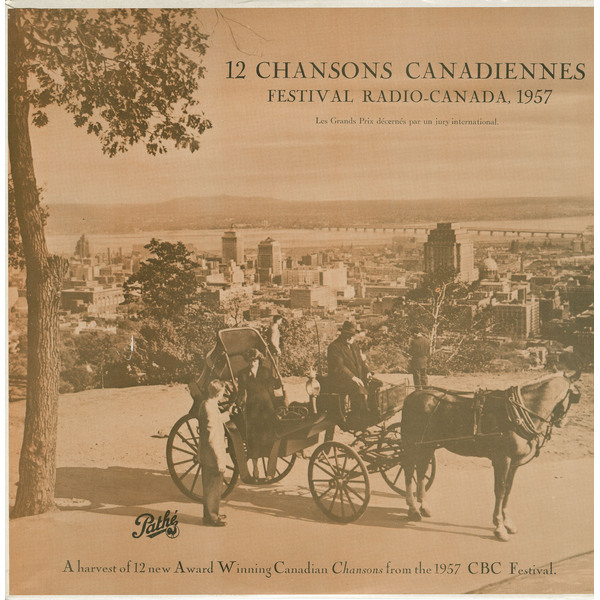
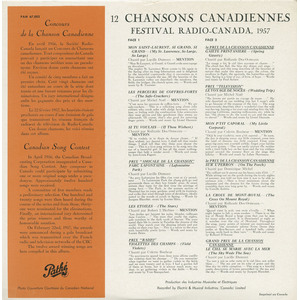

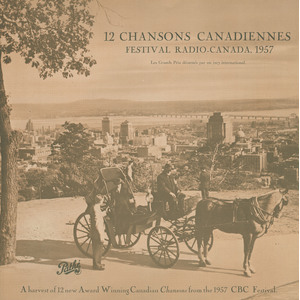

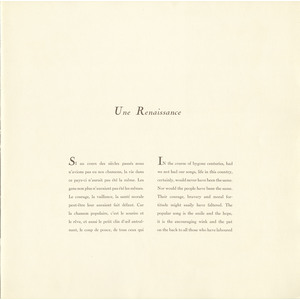
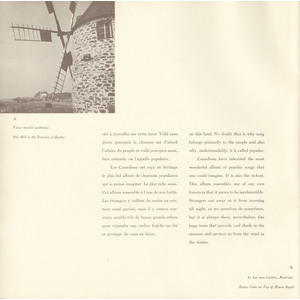
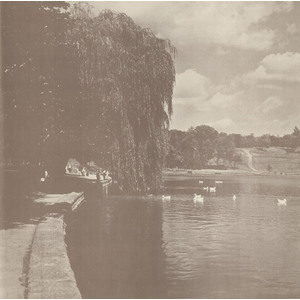
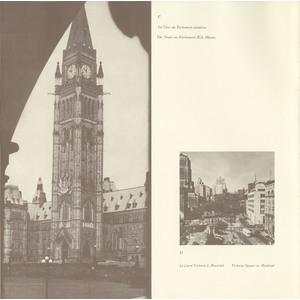
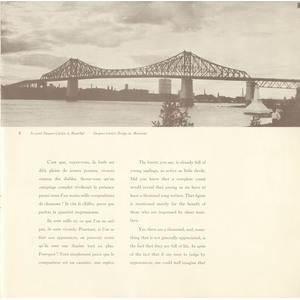
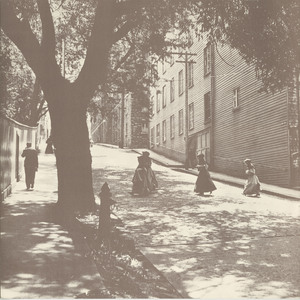
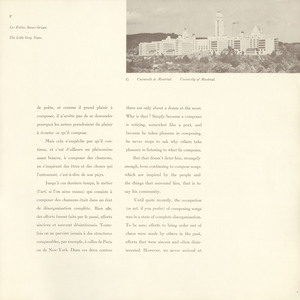


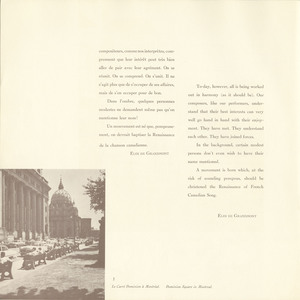
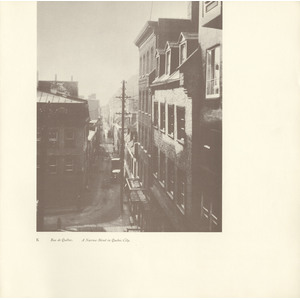

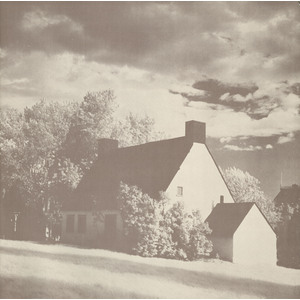
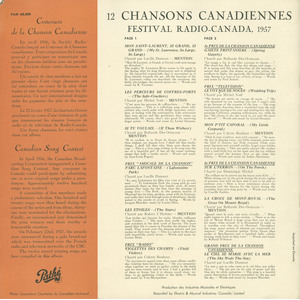
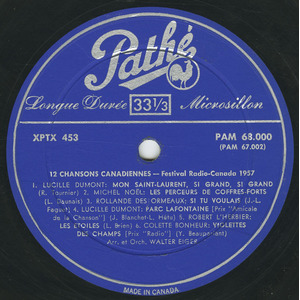
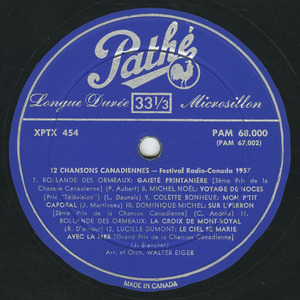
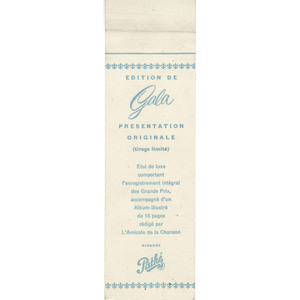
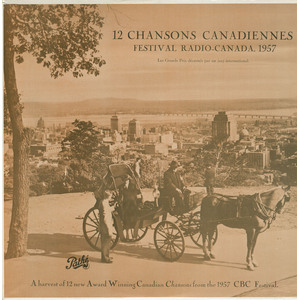
No Comments